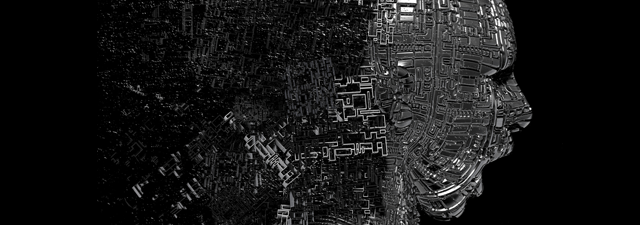This is not a conspiranoic text, much less a technophobic one, but sometimes it’s fun to talk from this perspective –and today is as good a day as any (or even better) to do it
Many people fear technology, justifiably or irrationally. This fear can be produced by technological evolution itself. By advancing like an ungoverned chariot, science and technology end up causing what we understand about the world to be constantly transformed and in ways, sometimes, unpredictable, which causes that uncertainty and the fear of reaching something that could destroy us.
On the other hand, it can also come from less philosophical and more concrete topics. Forget the mechanical prostheses or robotic arms that surgeons can use to achieve greater precision and reduce the risk of contamination for a few moments and think of a march of uniformed robots, dispensable and resistant soldiers controlled at a distance. Petman has been created for rescues in areas of chemical attack and surveillance, but could very easily wield (or, why not, incorporate) a rifle or a machine gun like the South Korean creation Super aEgis II, with thermal sensors (which means that it does not matter if it is at night or if the visibility is low) capable of locking on human targets up to 3 km away.
Less aggressive, but just as terrifying, may be surveillance drones. Imagine a small swarm of flying robots walking around and gathering information (videos, audios and even more, depending on the various sensors they have built-in) about what you do and pouring all that information on servers for whatever organization or government. Which leads us to exactly another possible source of these fears: because not everything has to come from hardwares, artificial intelligences and, even more, data also play a decisive role in taking the sleep of more than one.
Everything we do, not only online but also physically, generates information. Obviously, the amount of data generated today is much greater than in previous eras, hence the” big ” of big data. Not only that, but now we also have the means to collect this information and analyze it, so that we know that if you use a series of words repeatedly on your social networks you could commit suicide in the coming months (and we could help you) or that, with the purchases you have made and your family history we know which diseases you are most exposed to (and we can increase the value of your health insurance). The lack of intimacy within the online world can favor depersonalization, making us forget that behind the monitor there is a person. Both at one end and the other. Well, as intimacy is diluted, so too is anonymity, and the feeling of rant with impunity can end up revealing the worst of us.
From machines and robots programmed with predefined and limited specific actions we have transcended to systems capable of defeating Go champions and learning with the input they receive from various sources. The great fear comes exactly from the assumption that machine learning processes cause an artificial intelligence to run wild in such a way that the software enters one cycle after another of improvement, becoming increasingly intelligent, transforming into a super intelligence that surpasses human understanding. Once this has happened, the most likely, at least according to science fiction, would be that the super AI, for our own good and security, will restrict our freedom in some way (by force, like Skynet of Terminator or V. I. K. I. in I Robot; or by deceptions, like the Machines of Matrix or AUTO, of WALL-E). Which brings us to our last form of technological fear and perhaps the most insidious of all: what we do with technology to control ourselves.
Yeah, it’s pretty much related to everything we mentioned earlier. Surveillance drones, robot soldiers, access to data. But it goes beyond this. We speak here of the various dystopias that were presented to us through literature, in which we are dominated by human intelligences that handle us like puppets linked to the optical fiber.
Both 1984 and A Happy World reveal arguments that are still fairly current in that regard. The censorship of thought, the concealment or manipulation of the truth or, on the contrary, a quantity of information so overwhelming that the truth and the present become irrelevant.
Comic originally in recombinantrecords.net
Being controlled and removed from our humanity by what we hate or what we love. Or both at the same time. Seen like this, it’s really a little scary.









